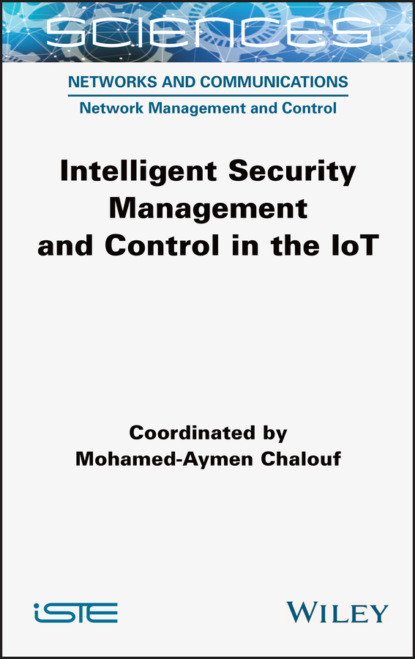Table of Contents 1
Cover
4
1 Multicriteria Selection of Transmission Parameters in the IoT
1.1. Introduction
1.2. Changing access network in the IoT
1.3. Spectrum handoff in the IoT
1.4. Multicriteria decision-making module for an effective spectrum handoff in the IoT
1.5. Conclusion
1.6. References
5
2 Using Reinforcement Learning to Manage Massive Access in NB-IoT Networks
2.1. Introduction
2.2. Fundamentals of the NB-IoT standard
2.3. State of the art
2.4. Model for accessing IoT terminals
2.5. Access controller for IoT terminals based on reinforcement learning
2.6. Performance evaluation
2.7. Conclusion
2.8. References
6
3 Optimizing Performances in the IoT: An Approach Based on Intelligent Radio
3.1. Introduction
3.2. Internet of Things (IoT)
3.3. Intelligent radio
3.4. Conclusion
3.5. References
7
4 Optimizing the Energy Consumption of IoT Devices
4.1. Introduction
4.2. Energy optimization
4.3. Optimization techniques for energy consumption
4.4. Energy optimization in the IoT
4.5. Autonomous energy optimization framework in the IoT
4.6. Proposition of a self-optimization method for energy consumption in the IoT
4.7. Conclusion
4.8. References
8
5 Toward Intelligent Management of Service Quality in the IoT: The Case of a Low Rate WPAN
5.1. Introduction
5.2. Quick overview of the IoT
5.3. IEEE 802.15.4 TSCH approach
5.4. Transmission scheduling
5.5. Routing and RPL
5.6. Combined approach based on 802.15.4 TSCH and multipath RPL
5.7. Conclusion
5.8. References
9
6 Adapting Quality of Service of Energy-Harvesting IoT Devices
6.1. Toward the energy autonomy of sensor networks
6.2. Fuzzyman: use of fuzzy logic
6.3. RLMan: using reinforcement learning
6.4. Toward energy autonomous LoRa nodes
6.5. Conclusion
6.6. References
10
7 Adapting Access Control for IoT Security
7.1. Introduction
7.2. Defining security services in the IoT
7.3. Access control technologies
7.4. Access control in the IoT
7.5. Access control framework in the IoT
7.6. Conclusion
7.7. References
11
8 The Contributions of Biometrics and Artificial Intelligence in Securing the IoT
8.1. Introduction
8.2. Security and privacy in the IoT
8.3. Authentication based on biometrics
8.4. Multifactor authentication techniques based on biometrics
8.5. Authentication techniques based on biometrics and machine learning
8.6. Challenges and limits
8.7. Conclusion
8.8. References
12
9
